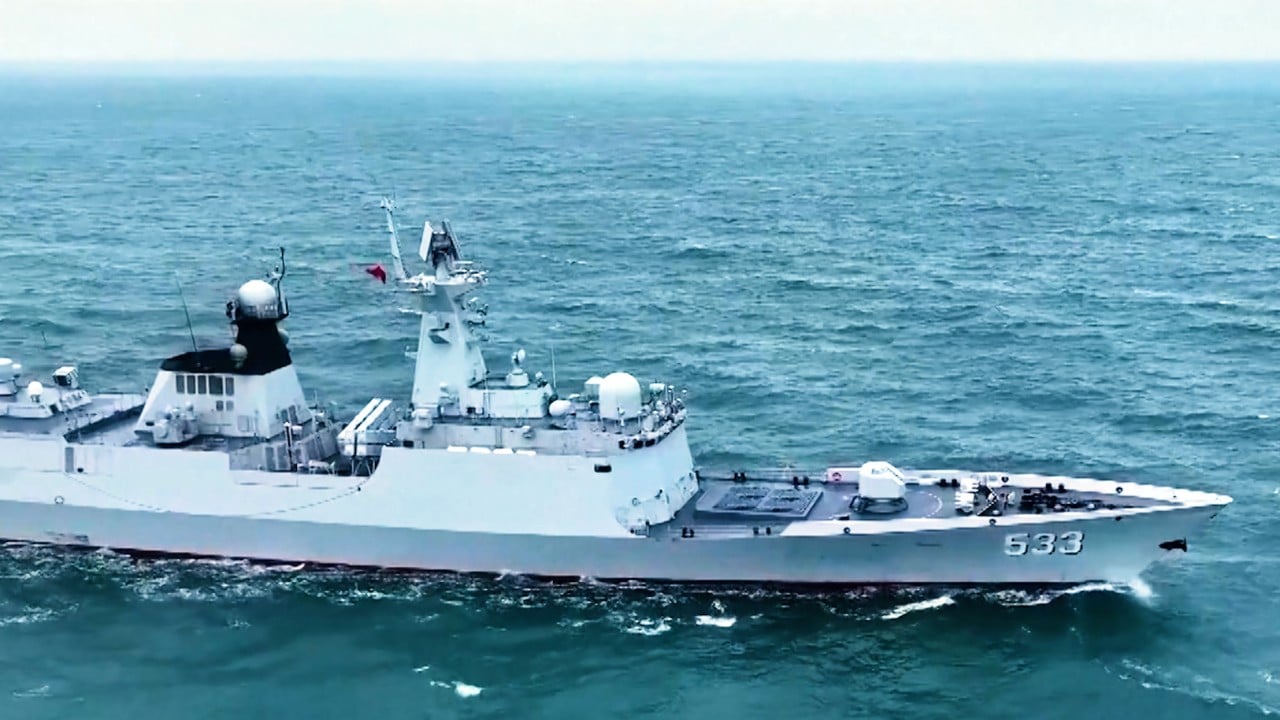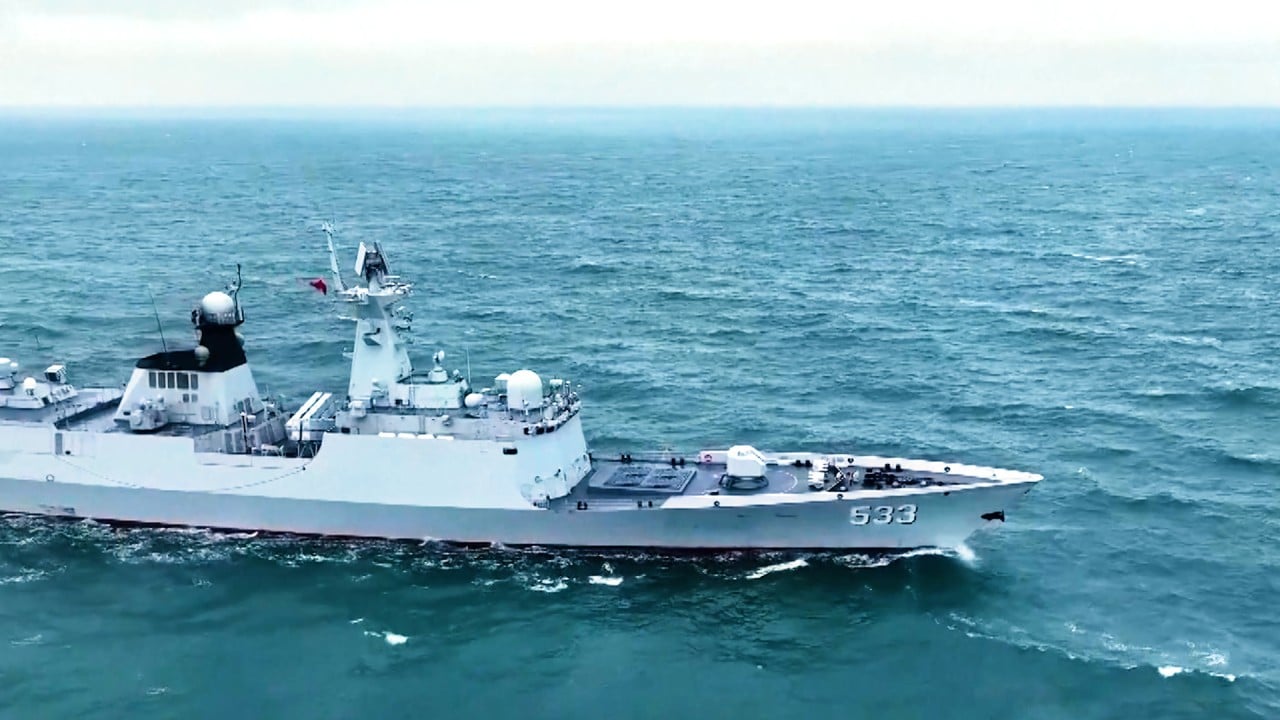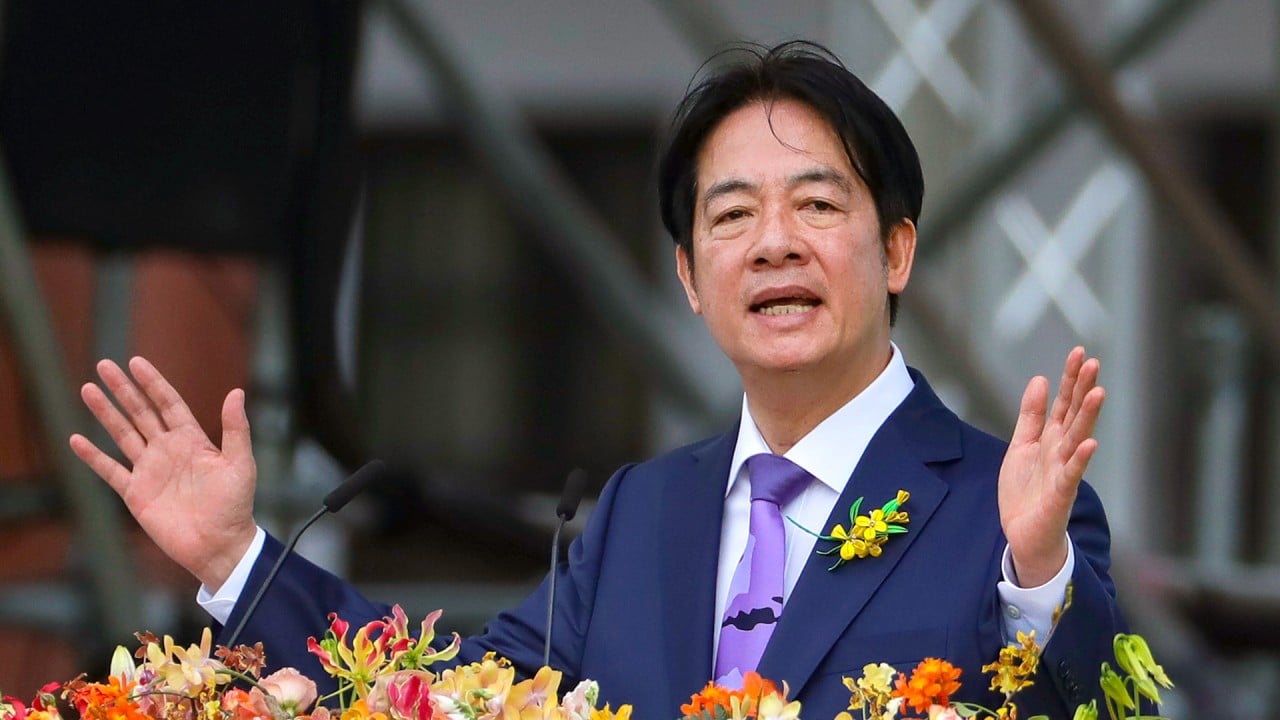Taiwan’s military budget would become a crippling financial burden if Taipei was forced to pay “protection money” to the US, a former leader of the island warned on the weekend, responding to a suggestion by US presidential candidate Donald Trump.
Ma Ying-jeou also cautioned that the United States was unlikely to sacrifice its own military personnel for the island if a war erupted with mainland China.
“Preparing for war is necessary, but high military expenditure is a burden Taiwan could not bear,” Ma told the Chinese Association in Thailand in Bangkok on Sunday.
“Especially if military purchases became the absurd and contemptuous ‘protection money’ referred to by US presidential candidate Donald Trump. The defence budget would become a financial black hole that could cripple Taiwan’s finances and only benefit the US military-industrial complex.”
In an interview with Bloomberg Businessweek in late June, Trump said it was “stupid” for the United States to offer protection to Taiwan for free, insisting that Taipei must pay more if it wanted Washington’s help to defend the island.
Trump also expressed scepticism about the feasibility of defending Taiwan from so far away, saying, “Taiwan is 9,500 miles away [from the US]” but just “68 miles away from China”.
Beijing views Taiwan as its territory that must be reunited by force if necessary. Like most countries, the United States does not recognise Taiwan as independent but opposes any unilateral change of the cross-strait status quo by force and is committed to supplying defensive arms to the island.
On Sunday, Ma said the government of new leader William Lai Ching-te needed to face reality.
“The United States is unlikely to sacrifice its own troops for Taiwan. If conflict were to break out across the Taiwan Strait, it would be the people on both sides who suffer the casualties.”
Trump’s former national security adviser Robert O’Brien has suggested that Taiwan consider spending “at least 5 per cent of its GDP” on its military to keep up with Beijing, though he implied that the figure was a rough estimate.
Chieh Chung, a professor of international relations and strategic studies at Tamkang University in New Taipei, said Taiwan was not likely to increase its defence budget to that level – particularly during peacetime.
“This would mean we must pay NT$1.228 trillion (US$37.64 billion) for military spending, which would account for 43 per cent of the NT$2.880 trillion in government expenditure for 2024,” he said.
Taiwan’s gross domestic product is projected to amount to NT$24.56 trillion for this year, with its defence budget accounting for NT$606.8 billion, or about 2.5 per cent of that total.
In his speech on Sunday, Ma also accused Lai of provoking Beijing by declaring that Taiwan and the mainland “are not subordinate to each other”.
“This provoked a strong reaction from mainland China,” Ma said, referring to Lai’s declaration at his inauguration on May 20.
Soon after the inauguration, the People’s Liberation Army conducted two days of large-scale military drills, surrounding the island in a blockade to warn Lai, whom Beijing has labelled an “obstinate separatist”.
Lai, from the independence-leaning Democratic Progressive Party (DPP), was elected in January to succeed Tsai Ing-wen, also from the DPP, as the island’s leader.
Ma stressed that cross-strait issues should be resolved by the two sides without interference from the US or other foreign entities.
“According to our constitution and that of mainland China, both sides belong to one China, so cross-strait issues should be discussed between the two sides themselves,” he added.

From a long-term perspective, he said, Taiwan should seek to resolve disputes through peaceful means, replacing war with dialogue and ultimately creating a win-win situation for both sides of the Taiwan Strait.
“My eight years in office are the best example of this practice,” he said, referring to his tenure from 2008 to 2016, during which he adopted a policy of engaging Beijing and acknowledging that constitutionally, ethically, and culturally, Taiwan and the mainland belong to China.




